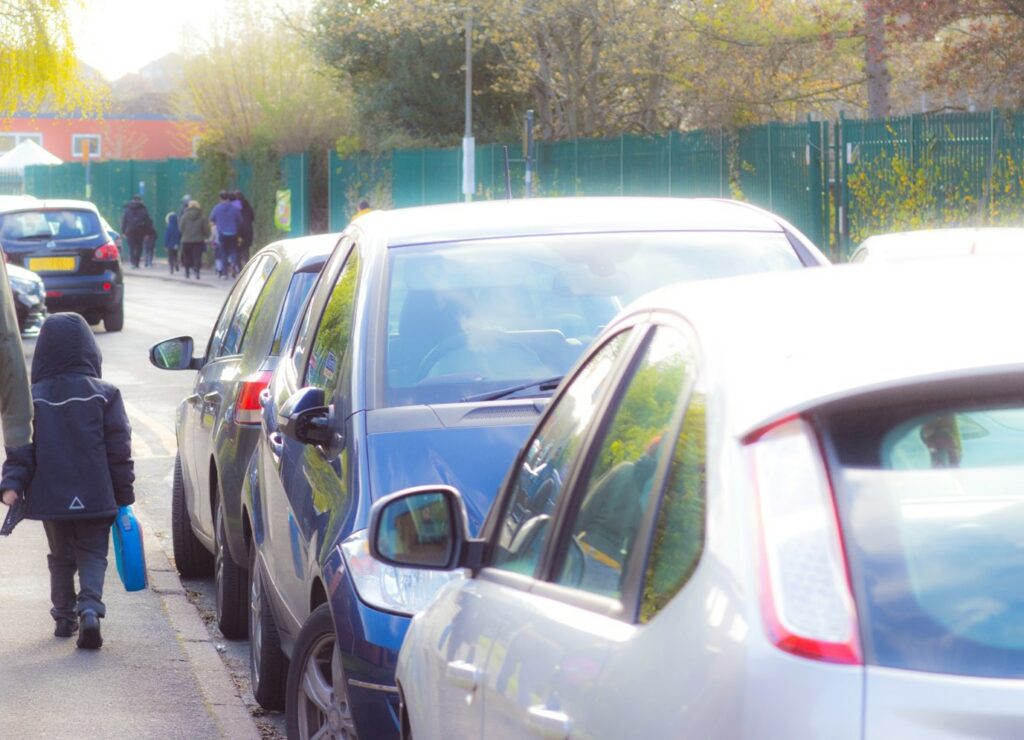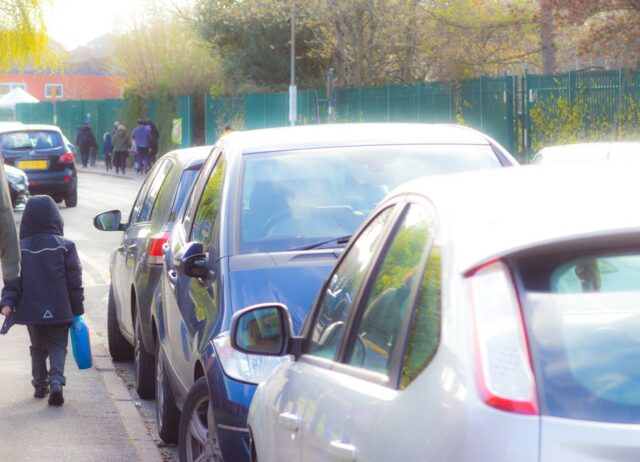Air pollution has extremely negative impacts on human health, particularly on school children. The report on air pollution in the UK shows that more than 25% of schools are located in areas with dangerous levels of air pollution. The highest number of polluted schools have been identified in South East England. Notably, the nine-year-old girl Ella Adoo-Kissi-Debrah in London has become the first person in the UK to have air pollution listed as a cause of death.

Through this project, children and parents in Reading, with our support and training, have used cutting-edge handheld Flow 2 sensors to measure air quality on the way to school and estimate air pollution risks. Based on instantly available air quality data, parents and children can choose a less polluted route that will minimise health impacts. We have installed three Airly air quality sensors at school gates to continuously monitor air quality and provide air quality data to the public.
We have also organised open days where children studied air pollutants, measured air quality themselves using advanced equipment provided by University of Reading, along with drawing and singing. We have co-produced a toolkit and action plan to improve the understanding of air pollution and helped with the School Streets and Green Screen projects that can reduce air pollution at schools.
This project has created a positive social impact through engaging local residents as citizen scientists, particularly inspiring young people. Awareness of air pollution and subsequent behavioural change will improve children’s health, promote science education, and inspire children and parents to access the resources available at the University of Reading.
Through surveys and interviews, we have received positive feedback on our project. One mother at Alfred Sutton Primary School called for more attention to air pollution:
“Bad effects of pollution don’t seem to be coming across as a message so well. There could be a regular day or week where [the children] focus on that [air pollution].”
A pupil at Geoffrey Field Junior School appreciated the use of handheld sensors for measuring air quality:
“It’s really interesting to see how the air pollution that we don’t even see can affect us and how high it can be around schools.”
Air pollution is a chronic challenge. It is impossible for one project to sort out all the problems. However, our project has set up an effective framework to measure air quality using handheld sensors, raise people’s awareness of air pollution, and support behavioural changes to improve air quality at schools and protect children’s health.
Working with children, parents, teachers, Reading Borough Council and the public, we hope we can avoid tragedies like Ella Adoo-Kissi-Debrah’s death in the future.
Hong Yang is a Professor of Environmental Science at the University of Reading. Marta O’Brien is a Teaching and Research Senior Technician and part-time PhD researcher in the Department of Geography and Environmental Science at the University of Reading.

